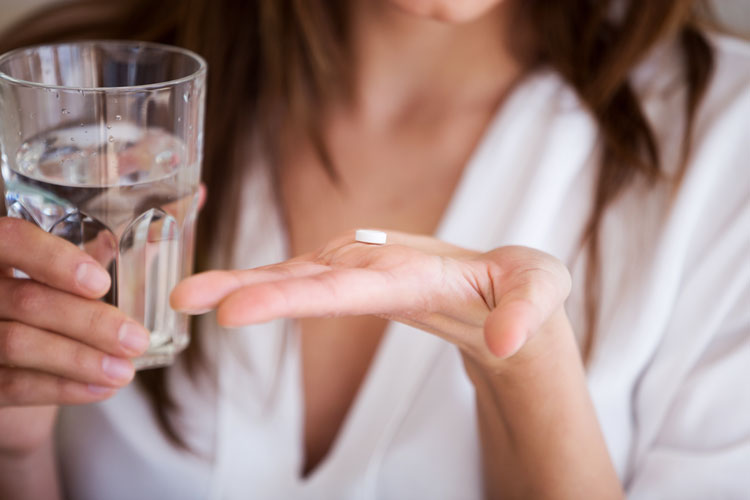Antidepressants and Addiction Recovery
 Often, people who are struggling with drug or alcohol addiction also suffer from co-occurring mental health disorders such as depression and anxiety. Treating these underlying conditions is an essential part of the substance abuse recovery process.
Often, people who are struggling with drug or alcohol addiction also suffer from co-occurring mental health disorders such as depression and anxiety. Treating these underlying conditions is an essential part of the substance abuse recovery process.
How Are Antidepressants Used in Addiction Recovery?
Antidepressants are prescription medications that can be used to treat a wide range of mood and anxiety disorders. They are most often prescribed for clinical depression and anxiety but can also be used to treat symptoms of seasonal affective disorder, bipolar disorder, eating disorders, PTSD, obsessive-compulsive disorder, and schizophrenia.
Types of Antidepressants
There are several different types of antidepressants, and each works to treat symptoms in a slightly different way.
- Selective serotonin reuptake inhibitors. Also known as SSRIs, these are the most commonly prescribed type of antidepressants. They work by blocking the reuptake, or absorption, of serotonin in the brain so it is easier for brain cells to receive and send messages. Citalopram (Celexa), escitalopram (Lexapro), fluoxetine (Prozac), fluvoxamine (Luvox), paroxetine (Paxil), and sertraline (Zoloft) are examples of SSRIs.
- Serotonin and noradrenaline reuptake inhibitors. Also known as SNRIs, these antidepressants raise levels of serotonin and norepinephrine—two neurotransmitters in the brain that play a key role in stabilizing mood. Duloxetine (Cymbalta), venlafaxine (Effexor), and desvenlafaxine (Pristiq) are examples of SNRIs.
- Tricyclic antidepressants. TCAs are an older type of antidepressant that work by increasing the brain’s supply of norepinephrine and serotonin. They are most often used for severe depression or when other treatments have failed because they tend to cause more side effects. Examples of TCAs include amitriptyline (Elavil), amoxapine-clomipramine (Anafranil), desipramine (Norpramin), doxepin (Sinequan), imipramine (Tofranil), nortriptyline (Pamelor), protriptyline (Vivactil), and trimipramine (Surmontil).
- Noradrenaline and specific serotonergic antidepressants. NASSAs are a newer type of antidepressant that work by increasing the amount of noradrenaline and serotonin in the synaptic cleft and blocking some serotonin receptors. They are often prescribed to people who are experiencing sexual dysfunction as a continued side effect of SSRIs. Common NASSAs include Mianserin (Tolvon) and Mirtazapine (Avanza, Remeron, or Zispin).
- Monoamine oxidase inhibitors. MAOIs inhibit the action of monoamine oxidase, a brain enzyme that breaks down serotonin and other neurotransmitters. They are more likely to cause negative interactions with other medications, so MAOIs are generally only used if SSRIs have not worked. Phenelzine (Nardil), tranylcypromine (Parnate), isocarboxazid (Marplan) and selegiline (EMSAM and Eldepryl) are examples of MAOIs.
More About Antidepressants
It can take some time to find an antidepressant that meets your needs. The medication needs to build up in your body to reach full effectiveness, which can take four to six weeks in many cases. You may experience side effects at first, but these often taper off after two to three weeks. It is important to take your medication exactly as prescribed and to be honest with your doctor about how you are feeling. If you don’t see a noticeable change in your mood or you’re bothered by side effects that aren’t going away, this could be a sign that a different medication might be more effective.
Abruptly discontinuing antidepressants can be dangerous—especially if you’ve been taking them for an extended time period. Quitting “cold turkey” can cause nausea, vomiting, diarrhea, headache, dizziness, and other uncomfortable physical symptoms as well as a sudden increase in depression or suicidal thoughts. If you’re having trouble affording your medication or want to try an alternative treatment approach, discuss your concerns with your doctor to find a solution that won’t jeopardize the progress you’ve already made in your recovery.
Can You Become Addicted to Antidepressants?
Often, people who are seeking treatment for substance use disorders are worried about taking any form of medication for fear of developing a new addiction. However, antidepressants are not addictive and will not get you high in the way that opioids or benzos would.
When considering whether antidepressants should be used as part of your recovery program, it is important to understand the difference between tolerance, dependence, and addiction. Tolerance occurs when a body adapts to the presence of a certain substance and eventually requires more of it to achieve the same effect. Dependence means that a person’s brain only functions normally when a substance is present in the body and that they will experience withdrawal symptoms when they stop using the substance. Tolerance and dependence can be warning signs of addiction, but it’s possible to develop a tolerance and dependence for antidepressant medication without experiencing the destructive changes to your daily routine that are associated with an addiction.
Antidepressants are safe and effective when used under the supervision of a trained healthcare provider to manage a diagnosed mental health condition. If they are used appropriately as part of an evidence-based treatment program that includes counseling, antidepressants can help you achieve long-term addiction recovery.
Get the Help You Need to Manage Your Substance Use Disorder
At St. Joseph Institute for Addiction, we provide a full continuum of care that includes services at our Pennsylvania residential addiction treatment center as well as a relapse prevention and continuing care program designed to ease the transition back to independent living. If you’re struggling with a substance use disorder and a co-occurring mental health condition such as depression, we can provide the resources you need to continue moving forward with your recovery.
Looking for co-occurring disorder treatment in Pennsylvania? To learn more about SJI Pennsylvania addiction rehab, and our programs, please contact us at (814) 228-8881.
